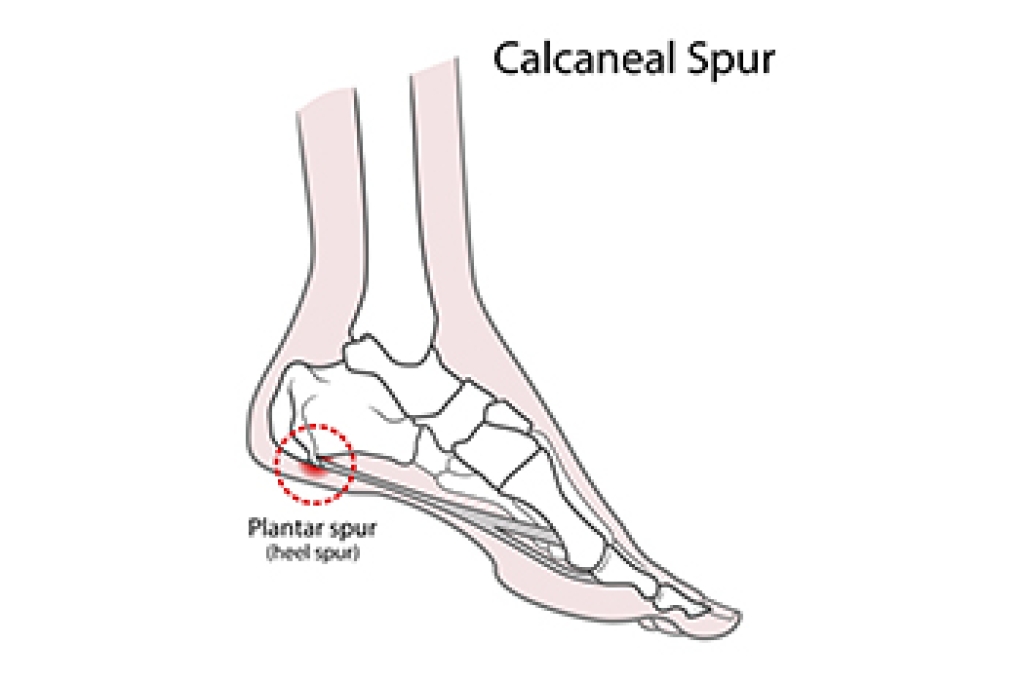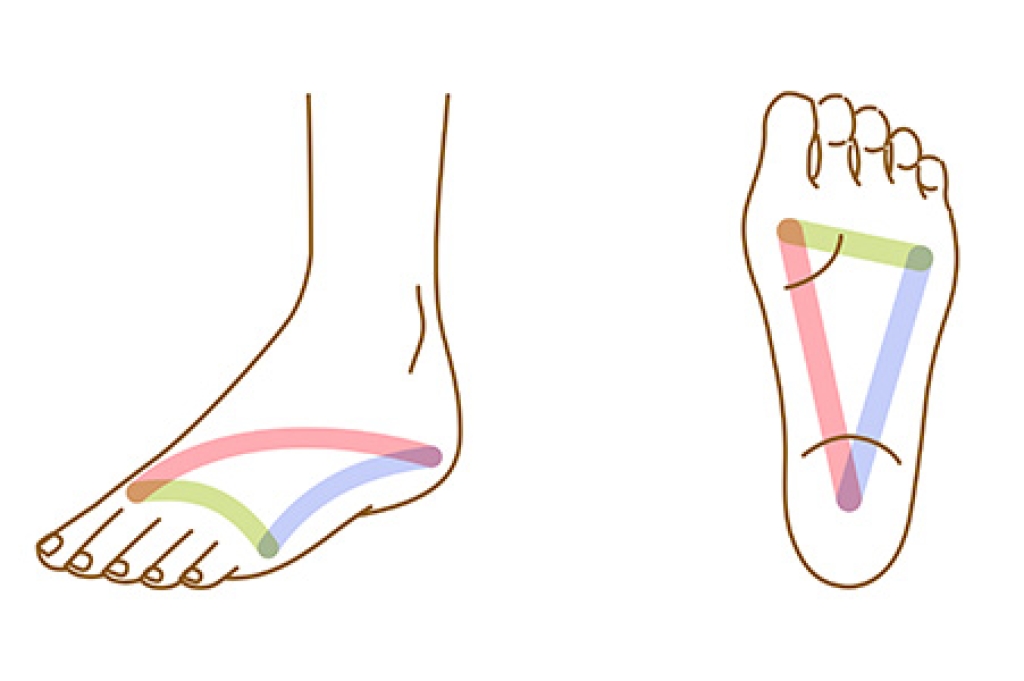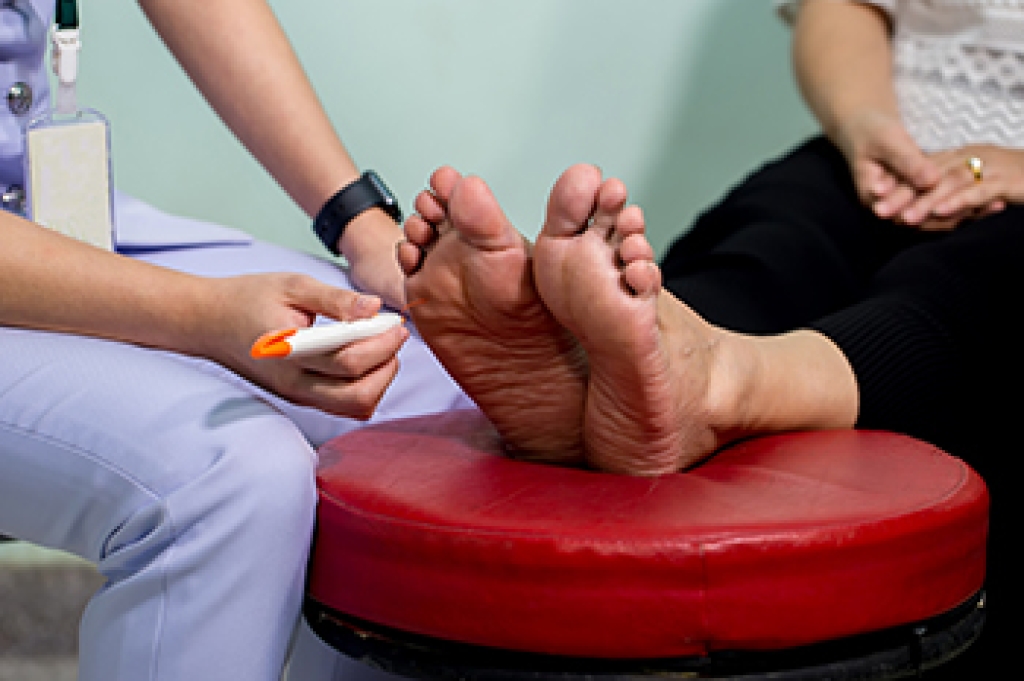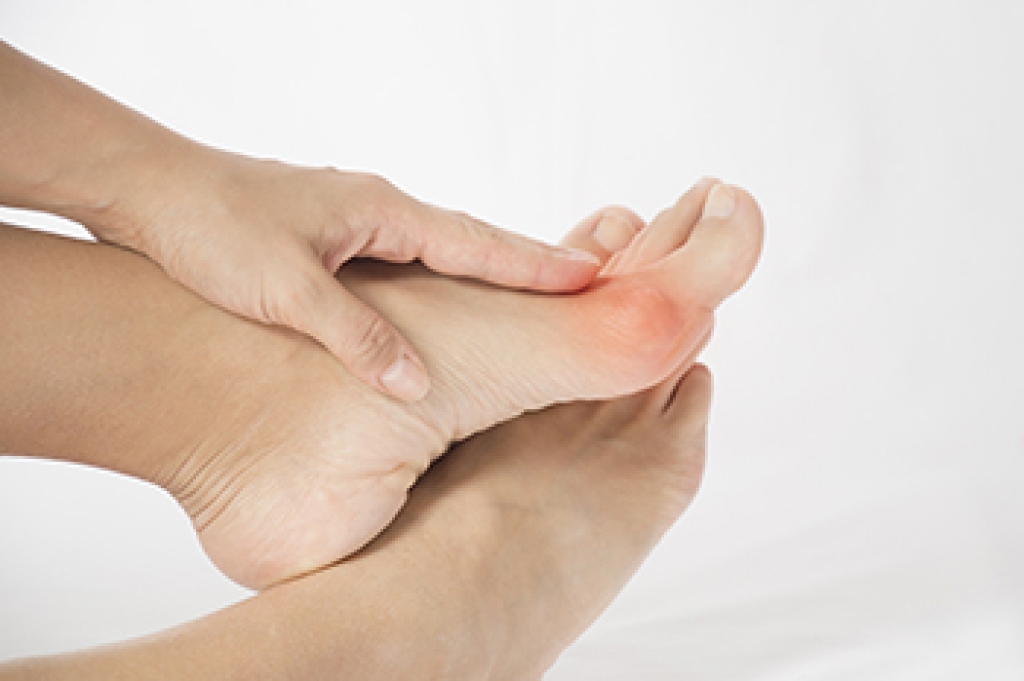
Heel spurs are bony growths that develop on the underside of the heel bone, often caused by long-term strain on the foot muscles and ligaments. Common causes include repetitive stress from walking or running, wearing poorly fitted shoes, obesity, or conditions like flat feet or high arches. Heel spurs are frequently associated with plantar fasciitis, a painful inflammation of the tissue along the bottom of the foot. Symptoms include sharp, stabbing pain in the heel, especially during the first steps in the morning, or after long periods of rest, along with tenderness, swelling, or a dull ache throughout the day. While some people may not feel any discomfort, others experience persistent pain that affects daily activities. A podiatrist can diagnose a heel spur through a physical exam and confirm the condition with X-rays. Treatment may involve orthotics, targeted exercises, stretching, anti-inflammatory medications, or, in severe cases, surgery. If you have a heel spur, it is suggested that you schedule an appointment with a podiatrist for effective treatment solutions.
Heel spurs can be incredibly painful and sometimes may make you unable to participate in physical activities. To get medical care for your heel spurs, contact one of our podiatrists from DeCaro Total Foot Care Center. Our doctors will do everything possible to treat your condition.
Heels Spurs
Heel spurs are formed by calcium deposits on the back of the foot where the heel is. This can also be caused by small fragments of bone breaking off one section of the foot, attaching onto the back of the foot. Heel spurs can also be bone growth on the back of the foot and may grow in the direction of the arch of the foot.
Older individuals usually suffer from heel spurs and pain sometimes intensifies with age. One of the main condition's spurs are related to is plantar fasciitis.
Pain
The pain associated with spurs is often because of weight placed on the feet. When someone is walking, their entire weight is concentrated on the feet. Bone spurs then have the tendency to affect other bones and tissues around the foot. As the pain continues, the feet will become tender and sensitive over time.
Treatments
There are many ways to treat heel spurs. If one is suffering from heel spurs in conjunction with pain, there are several methods for healing. Medication, surgery, and herbal care are some options.
If you have any questions, please feel free to contact our office located in West Hatfield, MA . We offer the newest diagnostic and treatment technologies for all your foot care needs.




